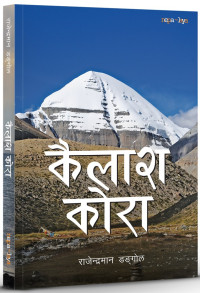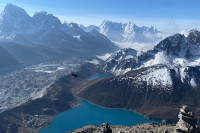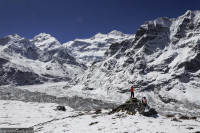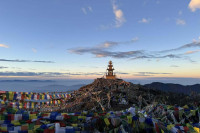Travel
To encourage local tourism, hotels launch attractive packages
With the festive season around the corner, almost every leading hotel in the country has announced stay packages specially designed for the domestic market.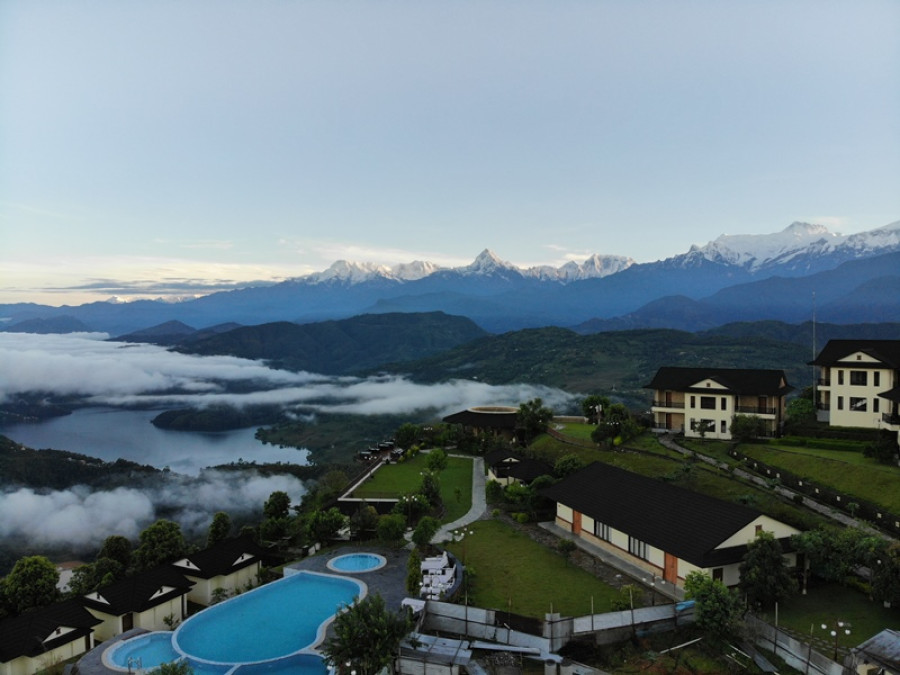
Tsering Ngodup Lama
From the third week of March to mid-July, Rupakot Resort in Lekhnath, Kaski, wore a deserted look. The resort’s 42 rooms were empty, and there were no diners at the restaurant, which offers gorgeous views of the beautiful Begnas and Rupa Lakes against the Annapurna Range.
During the roughly four months when the nation-wide lockdown was at its strictest, hotels across the country, like Rupakot, were either shut or had few guests.
It was finally in July, when the lockdown began loosening, that hotels started reopening. But by then, it had become known that international tourists, which the majority of hotels in the country rely on for revenue, were unlikely to travel to Nepal in the foreseeable future, and if the industry were to see any business in the coming months, it had to focus on the domestic market.
Fast forward to October, almost every leading hotel in the country now has stay packages specially designed for the domestic market, and with Dashain less than two weeks away, hotels are hopeful that attractive packages will encourage domestic travellers to travel.
Just 10 days after reopening, on July 26, Rupakot Resort announced a bed and breakfast package for the domestic market, making it one of the first premium hotels in the country to do so.
“We had finally reopened after months of closure, and we knew that if we are to get Nepali clients at our resort in these difficult times, we needed to come with a very attractive package,” said Shusil Adhikari, one of the directors of Rupakot Resort. “Keeping in mind how price sensitive the domestic market is, we priced our B&B package at Rs 6,000 nett. The response was quite good and during the entirety of the offer period, which was from July 26 to September 30, our average occupancy was 20 percent.”
Roughly an hour’s drive from Rupakot Resort and in the heart of Pokhara is Shangri-La Village Resort, which resumed operations on October 1. A day prior to the resort’s reopening, it announced a two nights and three days package for the domestic market. “The package includes two nights accommodation in a deluxe room and two meals a day for just Rs 12,999 nett for double occupancy and Rs 9,999 for double occupancy,” said Babita Pandey, Group Sales Manager at Shangri-La Hotel and Resort.
Rupakot too launched a special package from October 1. “The package includes room and two meals for only Rs 5,500 nett per person. It also includes free shuttle service from Pokhara to the resort,” said Adhikari.
Hotel executives say that the number of enquiries for packages have increased in the last few days but only a very few enquiries have converted into bookings.
“Until October 8, our daily occupancy rate was only around 15 percent,” said Pandey. “But we expect bookings to increase from the third week of October, which is when the Dashain holiday kicks off.”
According to Adhikari, Rupakot Resort’s daily occupancy is also around 15 to 20 percent. “But as we near Dashain, we expect occupancy to go up to 30 to 40 percent,” said Adhikari.
Nepalis who travel abroad for vacation during the festive season, says Pandey, are unlikely to do so in the current situation. “They’ll most likely want to travel within Nepal, which will give domestic tourism a much-needed boost,” said Pandey.
Another popular destination for travel during Dashain is Chitwan, and with Chitwan National Park now open, hotels in the popular wildlife safari destination are also gearing up for the festive season.
On October 1, Kasara Resort, a property that borders Chitwan National Park, reopened after being closed for more than six months. The hotel has now tied up with Yeti Airlines and is offering a two nights and three days package, which includes roundtrip airfare, all meals, jungle activities at Rs 16,999 per person.
“We are also offering the same package without airfare at a very attractive price for the domestic market,” said Sabita Tamang, sales and reservation officer at Kasara Resort. “We have been getting a good amount of inquiries and are looking forward to welcoming guests at the resort with all the safety measures in place.”
It’s not just hotels outside Kathmandu that are offering packages tailormade for the domestic tourists. Several hotels in Kathmandu have also come up with such packages hoping to attract the city’s residents looking for a quick staycation within the confines of the city and those travelling to Kathmandu from other parts of the country.
In August, Hotel Shambala, which is located in Bansbari, Kathmandu, announced special packages for the domestic market.
“We have two kinds of packages—an overnight and a day package. The overnight package includes accommodation, two meals, and access to the swimming pool. The package is priced at Rs 7,000 nett for single occupancy and Rs 8,000 nett for double occupancy,” said Tseten Tsatultsang, CEO of Hotel Shambala. “We also have a day stay package for Rs 5,000 nett for single occupancy and Rs 6,000 nett for double occupancy. The package includes room, three-course lunch and access to the swimming pool.”
When Hotel Shambala opened in the first week of July, says Tsatultsang, the hotel only had around three percent occupancy. “Most of our guests were NRNs who were stuck in Kathmandu due to the lockdown,” said Tsatultsang. “Ever since we launched our staycation packages, however, our occupancy has nominally increased to around 10 to 15 percent.”
Even though foreign tourists, which are the main source of revenue for the majority of hotels, are unlikely to arrive in the same numbers as previous years, hotels say that remaining close until international tourists start coming in is not an option for them. “In this scenario, whether you close or open, you are losing money,” said Tsatultsang. “But by remaining open and finding ways to generate business, you hope that you minimise losses and also give your staff a sense of purpose.”




 14.24°C Kathmandu
14.24°C Kathmandu

